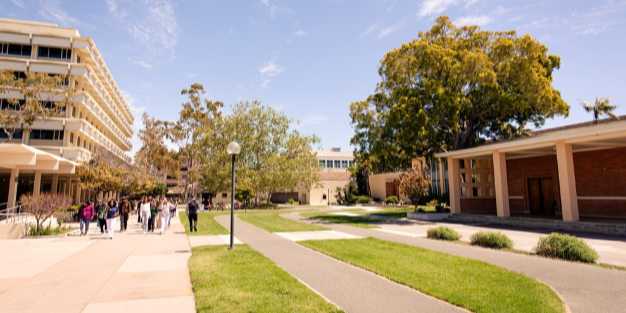On its webpage explaining what democratic socialism is, the Democratic Socialists of America (DSA) states that its goal is to replace capitalism with an alternative system featuring collective ownership of the “key economic drivers that dominate our lives” in order to give a “real voice” to ordinary people so they can transition to a supposedly freer, more just life where all can flourish:
Capitalism is a system designed by the owning class to exploit the rest of us for their own profit. We must replace it with democratic socialism, a system where ordinary people have a real voice in our workplaces, neighborhoods, and society.
We believe there are many avenues that feed into the democratic road to socialism. Our vision pushes further than historic social democracy and leaves behind authoritarian visions of socialism in the dustbin of history.
We want a democracy that creates space for us all to flourish not just survive and answers the fundamental questions of our lives with the input of all. We want to collectively own the key economic drivers that dominate our lives, such as energy production and transportation. We want the multiracial working class united in solidarity instead of divided by fear. We want to win “radical” reforms like single-payer Medicare for All, defunding the police/refunding communities, the Green New Deal, and more as a transition to a freer, more just life.
From an economic point of view, there is much to criticize in the DSA’s aspirations. As long ago as 1884, Austrian economist Eugen von Böhm-Bawerk refuted the exploitation theory of capital; later laying the foundations of Austrian capital theory, which explains how thrift and investment are necessary for boosting productivity. The capitalist’s contribution of refraining from present consumption so that labor and other inputs can be redirected towards earlier stages of production makes more time available for transforming inputs into outputs; the resulting investment earnings and increases in real labor incomes and in outputs constituting a win-win-win proposition for capitalists, workers, and consumers.
Moreover, a productive deployment of these inputs can only be achieved by private owners who are constrained by the necessity of pursuing profits and avoiding losses in a competitive market setting, not by socialist planners who lack prices and profit/loss incentives. In 1920, Austrian economist Ludwig von Mises, Russian economist Boris Brutzkus, and German sociologist Max Weber each independently demonstrated that rational cost-benefit calculations are impossible to the extent collectivization abolishes competitive, profit/loss-motivated price formation for producer goods.
The dynamic nature of economic conditions and the decentralization of knowledge relevant to production decisions (the latter point often stressed by Austrian economist Friedrich von Hayek) renders a socialist central planner incapable of enabling ordinary people to flourish at all. Rather, socialism’s abrogation of markets and profits leaves ordinary people impoverished and often resorting to illegal black markets to meet their most basic needs.
Perhaps conceding the unavoidable economic shortcomings of central planning, the DSA seems willing to hedge its condemnation of capitalism by seeking to limit collectivization to “key drivers” and to consider “many avenues” to collectivization, hinting that institutions like ownership by independent, non-profit cooperatives, etc. might complement direct state ownership in replacing capitalist ownership.
Other Mises Wire contributors have lately observed that the DSA hasn’t resolved the contradiction between bureaucratic control and popular consent and in practice embraces totalitarian proposals. Still, its framing of democratic socialism seems to appeal to a sincere desire to avoid the brutal, murderous examples of various Communist regimes while selectively using collectivization to curb the privileged. Much like complaints about free market libertarianism made by pro-Trump national conservatives, the DSA prioritizes fighting corporate elites, writing off any productivity losses arising from selective collectivizations as a tolerable collateral damage.
This analysis of corporate elites, however, is deeply flawed. It is not private ownership of the means of production that empowers malefactors of great wealth, but rather a corrupt political system that sells lucrative spoils, privileges, and immunities to them. Only unrigging markets (i.e., implementing radical libertarian reforms) can prevent such concentrations of power and unearned wealth by corporate elites without wrecking an economy. By promoting a sort of half-way house between capitalism and socialism, the DSA is unwittingly playing into the hands of corporatists, who can always find ways to harvest unjust political rents from government interventions, even from selective collectivization efforts.
As Mises noted in his 1950 address Middle-of-the-Road Policy Leads to Socialism, such a half-way house is never politically stable. Each incremental step taken towards greater government control spawns additional economic dislocations, further impairing the well-being of ordinary people. As long as voters err in believing that more controls will mitigate rather than exacerbate their distress, each step taken towards greater control spurs political demands for additional steps. This positive feedback loop only ends when full socialization of the economy is achieved, which is perhaps what some of the more cynical DSA leaders are actually hoping for.
Another important shortcoming of the DSA’s muddle is that an eclectic mix of independent collectivized firms can’t smoothly coexist with each other or with whatever remains of the private sector. The genius of capitalist planning is precisely that the private imperative of pursuing profits and avoiding losses compels each firm to adjust its production to meet the demands of its customers, and ultimately the whole structure of production to the demands of consumers. In an unrigged market, ordinary people dominate businesses. As Mises underscored in his essay Liberty and Property, the consumer is king under unhampered capitalism.
A socialist revolt against profits, on the other hand, necessarily crowns a new king. Collectivization cannot replicate the market’s ability to coordinate many independent planners; coordination can be achieved only by a single plan governing the whole collectivized sector. Under socialism, a central planner has to be crowned king to prevent the collectivized sector from shattering into autarkic fragments and thus eliminating the advantages of a division of labor across firms.
As a last resort, democratic socialists might hope that their king will still have to answer to a democratic majority. But here is where things really go wrong. In an elective monarchy, the winner is incentivized to leverage his central planning authority to prevent the future success of any rivals, wielding economic clout that is vastly greater and more concentrated than can ever be achieved by the wealthy under democratic capitalism. The worst get on top despite the democratic intentions; under socialism a democracy always gives way to a dictatorship of ruthless sociopaths.
Moreover, socialist plans can’t be confined just to organizing production like capitalist plans do. A prohibition of profit-making dictates that ordinary people can’t ever be permitted to independently plan or act for themselves, so the socialist dictator has to be deeply concerned about regulating everybody’s innermost thoughts and most intimate social interactions. Several well-known features of totalitarianism arise in all sincere attempts to implement and sustain a socialist system:
Surveillance—Every word and deed is scrutinized for signs of dissent or of insufficiently enthusiastic compliance. Privacy is compromised through monitoring of communications, parallel bureaucracies of political commissars and neighborhood watch committees, and recruitment of anonymous informants.
Punishment—Punishment is based on inquisitorial, secret police, and concentration camp methods, not just to deter willful disobedience, but also to terrify anyone displaying negative attitudes that might incite future disobedience. High-profile dissenters are subjected to show trials and public humiliations and presumptions of guilt are attributed to entire groups to heighten such terror.
Isolation—Insufficiently controlled and scripted social interactions are suppressed to prevent spontaneous outbreaks of unplanned deviancy and to diminish opportunities for propagating dissent. Isolation measures include censorship, internal passport controls, and dumbing-down of language.
Debilitation—Everyone is kept busy and exhausted with mind-numbing tasks, leaving no quiet time for formation of deviant thoughts or organization of conspiracies. Young males in particular are drafted into tightly-controlled group activities of this nature to thwart their natural rebelliousness.
Engagement—Everyone is saturated with propaganda promoting the values that inform the central plan, and must actively support this official ideology with loyalty oaths, ideological indoctrination and testing, self-criticisms, public humiliations of deviants, virtue signaling, etc.
Rectification—Historical memories and cultural norms embodying values conflicting with official values are altered or suppressed; any family structures, religious institutions, etc. that spontaneously propagate values are suppressed or brought under centralized control.
Synchronization—All institutions normally thought of as being non-economic are brought under centralized control too, as any organization capable of independent decision-making and joint action can pose a threat to the plan and maybe to the planner.
Many democratic socialists would undoubtedly protest that they would never let a central planner go so far, though a few might confess that this is precisely what they want, while others might endorse autarkic fragmentation and deindustrialization. However, the DSA’s pretense that ordinary people can somehow gain a greater voice and a freer life through curtailment of private ownership is patently false. For ordinary people, socialism necessarily leads to the regimentation of totalitarian tyranny.






























